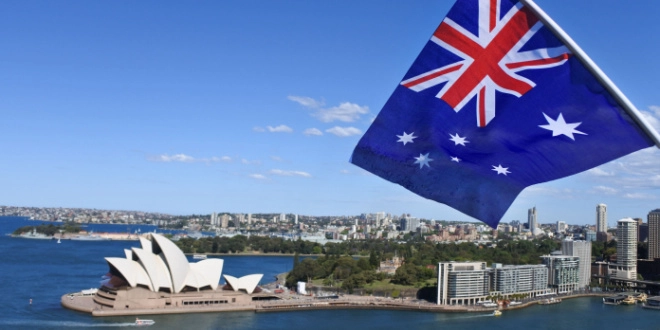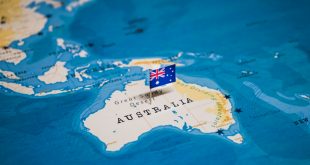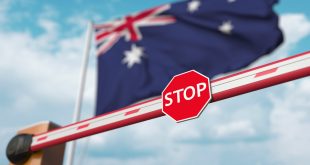The Alliance for Gambling Reform (AGR), an Australian campaign group lobbying for changes to the country’s regulatory framework on betting, has harshly criticised existing provisions.
In its Online Gambling Policy, the AGR has asserted that Australia’s national regulations on gambling are lagging behind those of other jurisdictions, such as in Europe. The report took note of recent changes in European countries, notably Belgium, the Netherlands, Spain, Italy, Germany and the UK.
The group claims that its analysis shows that Australian customers lose around AU$7bn per year on gambling, with 34% of online bettors and 15.6% of poker machine players likely to suffer from gambling-related harm.
Carroll Bennett, AGR Chief Executive, said: “While Australia dithers on banning sports gambling ads an hour before and after a game, many countries across Europe and Asia have simply banned all gambling advertisements in traditional media and online.”
Bennett asserted that Australia has ‘light touch gambling policy and regulation’ and should take measures to bolster its framework and improve player protection.
“Most dangerously this is allowing a convergence between gambling and gaming that is targeted at young people,” Bennett continued.
“Gambling-like features are now embedded in gaming and most have no age restrictions. And it appears poker machine manufacturers such as Aristocrat are also grooming young people through unrestricted apps that mimic the look and sound of poker machines.”
In its referral to European nations, AGR pointed to the UK Gambling Act review White Paper, stating that the regulatory recommendations have ‘proposed limits to logos on sports jerseys and advertisements at stadiums’.
This is somewhat accurate, as the White Paper has proposed a Code of Conduct for sports clubs and bookmakers when entering into sponsorship agreements. It is also recommended that LED adverts in stadiums cannot be viewed from family stands.
The decision on logos on shirt fronts was taken by the Premier League itself, however, and not the White Paper, although the DCMS document did recommend that its Code of Conduct be adopted at all levels of UK sport.
Of the 20 clubs in the English topflight, 18 voted in favour of withdrawing shirt sponsorship deals with betting firms by the 2027/28 season. The remaining two abstained.
As well as the UK, Bennett noted that Italy and Germany have also banned gambling adverts on television, radio and online, similar restrictions have been imposed in Spain, and a ban in the Netherlands is set to begin on 1 July.
Belgium will also introduce a ban on this date, whilst it has also adopted a mandatory limit on customer spend of €200 per week.
In its report, the AGR has outlined its own recommendations for Australian betting regulations, detailing seven core proposals.
The first of these is to reduce ‘exposure to online gambling harm’, including a ban on advertising, all forms of online promotion and ‘inducements’ and regulation of video game loot boxes.
Additionally, the AGR has criticised the lack of a single national regulator or strategy in Australia, whilst many European jurisdictions have a single authority, such as the UK Gambling Commission (UKGC) or French ANJ.
The current situation sees the Australian Communications and Media Authority (ACMA) holding some form of national oversight, with regulatory leadership then divided among state regulators, such as the Northern Territory Racing Commission (NTRC).
To achieve its third proposal of reducing unintended online losses online the AGR has called for ‘mandatory pre-commitment schemes’ and ‘default checks’, similar to the debate around affordability checks seen in the UK over the past two years.
Increasing public awareness of gambling and its harms and decreasing stigma should be an additional priority, the AGR added.
This should include implementing a national multi-platform gambling harm campaign, using federal funds to back harm minimisation and replacing wording such as’ responsible gambling’ and ‘problem gambler’ to ‘harm prevention’ and ‘gambling harm’.
Coupled with this is a recommendation for enhanced education and training, including development of a national curriculum and ensuring gambling industry staff have the necessary player protection skills.
Lastly, the AGR has called on the government to improve existing gambling harm treatment programmes and invest into research and best practice, including requiring operators to share ‘unidentified’ data.
In its summary of the report, the AGR concluded: ” Urgent action is needed to safeguard all Australians from rapidly emerging technological developments being weaponised by an industry for profit. The systems preventing and limiting gambling harm across this country are in serious need of overhaul.”
As noted by the AGR, a parliamentary inquiry into Australian gambling’s societal impact is currently underway, and is due to release its own recommendations later this month.









